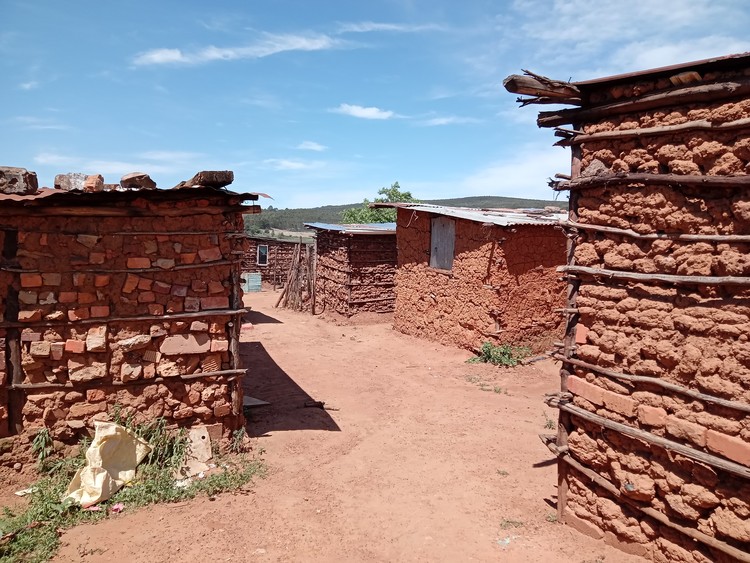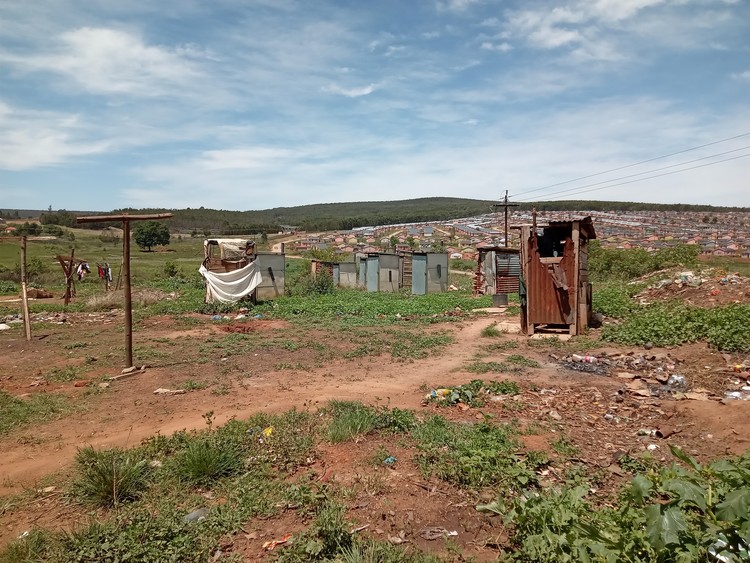Life is tough in Tin Town
“When it is raining, we spend our nights standing up”
These are homes of the people of Tin Town. Photos: Bongane Motaung
Tin Town is a rural KwaZulu-Natal settlement on the banks of the uMvoti River. Despite its name, most of the homes there are made of red mud, clay bricks and wooden planks. The area has about 70 informal homes.
Many of the Tin Town residents are unemployed. Some rely on social grants to survive and say they have no choice but to live there. There is no formal electricity or running water. There are a handful of communal pit toilets which fill up quickly and have a terrible smell.
In 2019, the uMvoti municipality moved some of Tin Town’s residents to RDP houses as part of the Greytown Slums Clearance project. But dozens of people who did not meet the criteria had to stay behind. The municipality, in 2020, obtained a court interdict to stop more people from occupying the land.
“Every house is leaking. We need toilets and proper shelter. When it is raining, we spend our nights standing up because we fear our houses will fall on us while we sleep,” said Nothile Thusi.
Lungisile Mtshali said many of the families depend on a local feeding scheme that provides meals every Tuesday and Wednesday. The rest of the week, they go to bed hungry, said Mtshali.
She said she was among those who did not qualify for an RDP house at the Slums Clearance project. “Government only comes to us with empty promises when they need votes. They only assist with blankets when our houses burn in fires,” she said.
Ward 9 Councillor Lindokuhle Zondi promised that the municipality would deliver portable toilets to the community soon. He said a new project would be launched soon in Greytown to boost job opportunities. “Our town is small and the number of people coming here to search for jobs increases every day,” he said.
The municipality did not respond to our request for comment.
Communal pit toilets used by Tin Town families.
Support independent journalism
Donate using Payfast

Don't miss out on the latest news
We respect your privacy, and promise we won't spam you.
Next: Hundreds march in Joburg demanding water
Previous: School pit toilet nightmare solved thanks to civil society
© 2024 GroundUp. This article is licensed under a Creative Commons Attribution-NoDerivatives 4.0 International License.
You may republish this article, so long as you credit the authors and GroundUp, and do not change the text. Please include a link back to the original article.
We put an invisible pixel in the article so that we can count traffic to republishers. All analytics tools are solely on our servers. We do not give our logs to any third party. Logs are deleted after two weeks. We do not use any IP address identifying information except to count regional traffic. We are solely interested in counting hits, not tracking users. If you republish, please do not delete the invisible pixel.


